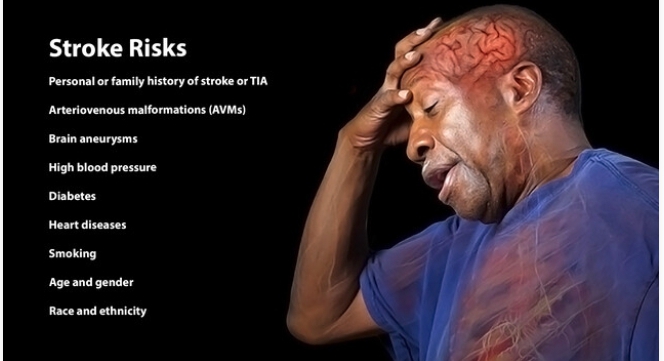Stroke Prevention Guide And Tips
How to Reduce the Risks of Stroke
Introduction
Stroke is a serious medical condition that occurs when there’s a disruption in the blood supply to the brain. It can have devastating consequences, but the good news is that many strokes are preventable. In this article, we’ll explore the essential steps you can take to reduce the risks of stroke and protect your long-term health.
Understanding Stroke
Defining Stroke
A stroke happens when blood flow to the brain is obstructed (Ischemic Stroke) or when a blood vessel ruptures in the brain (Hemorrhagic Stroke). Understanding these types is the first step to stroke prevention.
Recognizing Warning Signs
Recognizing the warning signs of a stroke is crucial. Sudden numbness, confusion, trouble speaking, severe headache, and difficulty walking are common indicators. Acting fast can save a life.
Risk Factors
Modifiable Risk Factors
Some risk factors can be changed through lifestyle choices. High blood pressure, smoking, an unhealthy diet, and physical inactivity are key contributors to stroke risk.
Lifestyle Changes for Prevention
To reduce stroke risk, embrace a heart-healthy lifestyle. Focus on maintaining a balanced diet, staying active, and avoiding harmful habits.
See Also:
Risks Involved In Consuming Roasted Meat
Managing High Blood Pressure
High blood pressure is a significant stroke risk factor. Monitor your blood pressure regularly and follow your doctor’s advice on medication and lifestyle changes.
Quitting Smoking
Smoking significantly increases stroke risk. Quitting smoking is one of the most effective ways to lower your risk.
Healthy Diet Choices
The Power of Nutrition
A diet rich in fruits, vegetables, whole grains, and lean proteins can help reduce stroke risk. Lowering salt and sugar intake is equally important.
Regular Physical Activity
Exercise is a powerful ally in stroke prevention. Aim for at least 150 minutes of moderate-intensity exercise each week.
Moderate Alcohol Consumption
Moderate alcohol consumption can have some heart benefits, but excessive drinking increases stroke risk. Drink responsibly.
Medication and Medical Check-ups
If prescribed medication for conditions like high blood pressure or atrial fibrillation, take it as directed. Regular medical check-ups can catch and address risk factors early.
Stress Management
Chronic stress can elevate blood pressure and contribute to stroke risk. Practice stress-reduction techniques such as meditation or deep breathing exercises.
Sleep and Sleep Disorders
Quality sleep is essential for overall health. Address sleep disorders, like sleep apnea, which can increase stroke risk.
Preventing Stroke in Specific Populations
Stroke prevention can vary based on age and gender. Consult with healthcare professionals to understand specific risk factors for your demographic.
Conclusion
In conclusion, stroke is not entirely unavoidable, but it is largely preventable through lifestyle choices and regular healthcare. By managing risk factors, making healthy choices, and staying informed, you can significantly reduce the likelihood of a stroke. Take control of your health, and prioritize stroke prevention today.
Stroke Prevention Guide And Tips Questions:
Frequently Asked Questions (FAQs)
1. Can young people have strokes?
Yes, strokes can occur at any age. While they are more common in older adults, younger individuals can also be at risk due to factors like genetics and lifestyle.
2. What is the role of genetics in stroke risk?
Genetics can play a role in stroke risk, but lifestyle factors often have a more significant impact. It’s essential to address modifiable risk factors regardless of your genetic predisposition.
3. Is there a specific diet for stroke prevention?
A heart-healthy diet, rich in fruits, vegetables, and whole grains, can help prevent stroke. Reducing salt and sugar intake is also important.
4. How often should I get my blood pressure checked?
It’s recommended to have your blood pressure checked at least once a year, but your doctor may recommend more frequent checks based on your health and risk factors.
5. Are there any warning signs of a stroke that are often overlooked?
Sometimes, less common symptoms like sudden dizziness, trouble seeing in one or both eyes or a sudden severe headache can be warning signs of a stroke. It’s crucial to be aware of these less typical symptoms as well.


[…] Stroke Prevention Guide And Tips […]